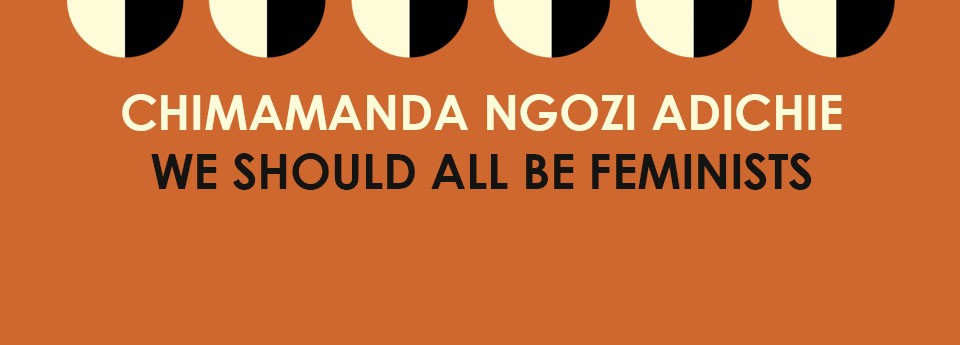
Nothing brings more Joy to our friend Joy than books. Currently studying for her leaving cert, she has taken some time out to read some books and review them for us.
First up, our all time favourite: “We should all be Feminists” by Chimamanda Ngozi Adichie….
This book had way more meaning than its 50 pages. It was simple, easy to read, and I didn’t want to put it down, it was just really interesting. I don’t know, but I felt reassured reading it. It talked about stuff that, as girls and women, we should all be talking about. Especially with our friends and in school, but as she said, the word ‘feminist’ makes people uncomfortable because we don’t know exactly what it means. To explain it, Chimamanda Ngozi ADichie tells us about her life experiences facing sexism and how the word feminism has such strong stereotypes associated with it, and moving forward we need to forget about them. This book isn’t a “scary feminist book” that women and men alike are afraid to pick up. She wants us to see things from her point of view from her life challenges where she was never truly equal and let us know how we can change that for future generations, for young girls, women, boys and men. Letting all of them know that absentmindedly not treating another person equally is wrong no matter what the situation.
I would one hundred percent recommend reading this. It was so inspiring and unique that the half hour spent reading it could change your day for the better.
BTW, if you were left wanting more (like I was) I would recommend her TED Talk which features all the amazing ideas from her book and its wonderful to get to see her talk so passionately about what she believes in. Watch it here.
Her other titles include Purple Hibiscus, Half of a Yellow Sun, and Americanah, which have all won literary awards and her short story collection The Thing Around your Neck was nominated for a John Llewellyn Phys Prize.
Here’s my favourite quote…

Heres a few more quotes that we loved…
1. “Culture does not make people. People make culture. If it is true that the full humanity of women is not our culture, then we can and must make it our culture.”
2. “Some people ask: ‘Why the word feminist? Why not just say you are a believer in human rights, or something like that?’ Because that would be … a way of pretending that it was not women who have, for centuries, been excluded. It would be a way of denying that the problem of gender targets women.”
3. “I have chosen to no longer be apologetic for my femaleness and my femininity. And I want to be respected in all of my femaleness because I deserve to be.”
4. “We teach girls shame. ‘Close your legs. Cover yourself.’ We make them feel as though being born female they’re already guilty of something. And so, girls grow up to be women who cannot say they have desire. They grow up to be women who silence themselves. They grow up to be women who cannot say what they truly think. And they grow up — and this is the worst thing we do to girls — they grow up to be women who have turned pretense into an art form.”
5. “And then we do a much greater disservice to girls, because we raise them to cater to the fragile egos of males. We teach girls to shrink themselves, to make themselves smaller. We say to girls: You can have ambition, but not too much. You should aim to be successful but not too successful, otherwise you will threaten the man. If you are the breadwinner in your relationship with a man, pretend that you are not, especially in public, otherwise you will emasculate him.”
6. “Masculinity is a hard, small cage, and we put boys inside this cage.”
7. “A Nigerian acquaintance once asked me if I was worried that men would be intimidated by me. I was not worried at all — it had not even occurred to me to be worried, because a man who will be intimidated by me is exactly the kind of man I would have no interest in.”
8. “Gender as it functions today is a grave injustice. I am angry. We should all be angry. Anger has a long history of bringing about positive change.”
9. “But by far the worst thing we do to males — by making them feel they have to be hard — is that we leave them with very fragile egos. The harder a man feels compelled to be, the weaker his ego is.”
10. “My own definition is a feminist is a man or a woman who says, yes, there’s a problem with gender as it is today and we must fix it, we must do better. All of us, women and men, must do better.”


